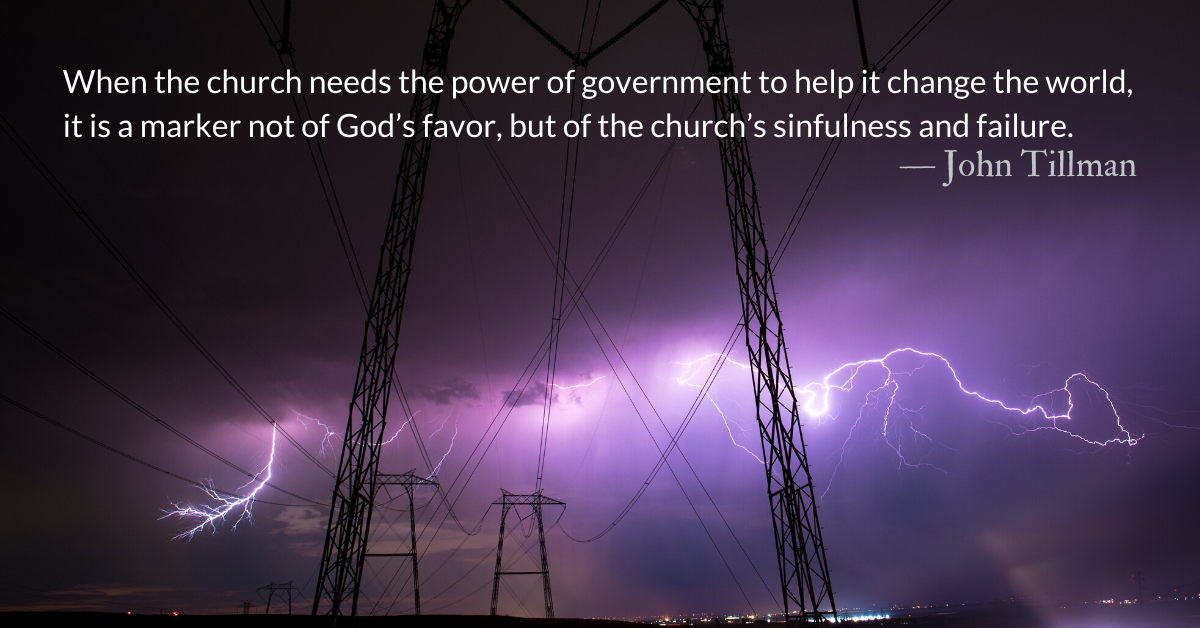Scripture Focus: Ezra 7.21-23
Now I, King Artaxerxes, decree that all the treasurers of Trans-Euphrates are to provide with diligence whatever Ezra the priest, the teacher of the Law of the God of heaven, may ask of you—up to a hundred talents of silver, a hundred cors of wheat, a hundred baths of wine, a hundred baths of olive oil, and salt without limit. Whatever the God of heaven has prescribed, let it be done with diligence for the temple of the God of heaven. Why should his wrath fall on the realm of the king and of his sons?
Reflection: The Exodus and The Return
By John Tillman
There are two different examples in scripture of God setting his people free from oppressive captivity and parallels in the New Testament to go along with them.
In the Exodus narrative, freedom comes by rebellion, resistance, and cataclysmic confrontation. The people engage in deceitful (Exodus 1.15-21 and Exodus 5.3) resistance to the empire of Egypt that is their oppressor. In this narrative, the government is the enemy of God and the people triumph over and defeat the government oppressors in a violent confrontation in which God fights for them.
The New Testament version of this is the return of Christ described in Revelation and other prophetic writings. In this appearing, or second Advent, Christ comes as a liberating force, suddenly overthrowing the governments of the world which oppose Christ’s kingdom. Christ, the warrior on the white horse will, with his words, set us all free in a moment.
In the return from Babylon, freedom comes slowly over generations and is accomplished by faithful obedience. The people never engage in resistance or deceit. Others, working against them, use deceit and subterfuge but they never succeed. The empires act as their ally and protector.*
*It is a mistake to assume the governments Ezra dealt with (or any government) is operating out of sincere belief as we would define it. The empires and kings Ezra references are operating in self-interest, honoring Yahweh as one of many gods in a pantheistic stew. It is only because of Israel’s sinfulness and rebellion that it needed a foreign, idol-worshiping king to help it rebuild. When the church needs the power of government to help it change the world, it is a marker not of God’s favor, but of the church’s sinfulness and failure.
In the New Testament, we see a similar kind of growth in the way the early church proceeds to live under the corrupt rule of both the religious rulers and the brutal empire of Rome. This is the mode of freedom in Christ that we are still operating under today.
As we live under corrupt governments we must remember to live wisely and prudently. (Matthew 10.16) Those who are not against us are for us. (Mark 9.38-40) But we must also not abandon our integrity to fawn for the support of any king. For those who are not with us are against us. (Luke 11.23) The testimony of Ezra tells us that kings come and go, but it is the Lord who is our only hope and protector.
Divine Hours Prayer: The Refrain for the Morning Lessons
Our help is in the name of the Lord, the maker of heaven and earth. — Psalm 118.28
– From The Divine Hours: Prayers for Autumn and Wintertime by Phyllis Tickle.
Read more about Light Shines in the Darkness
The Temple Solomon built was destroyed by God because it lost sight of holiness. The second Temple Ezra built would be condemned by Christ for losing sight of mercy.
Read more about The Mingled Prayers of Exiles
Lord, we pray today as the exiles prayed, with mingled sorrow and joy.







